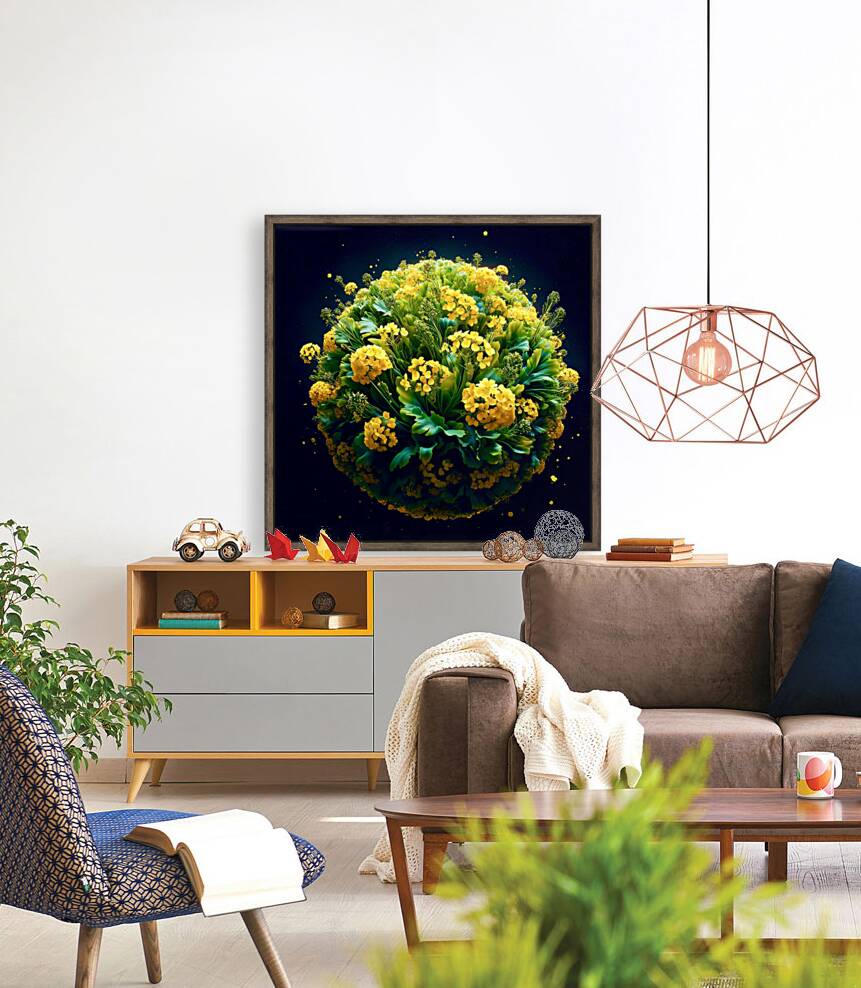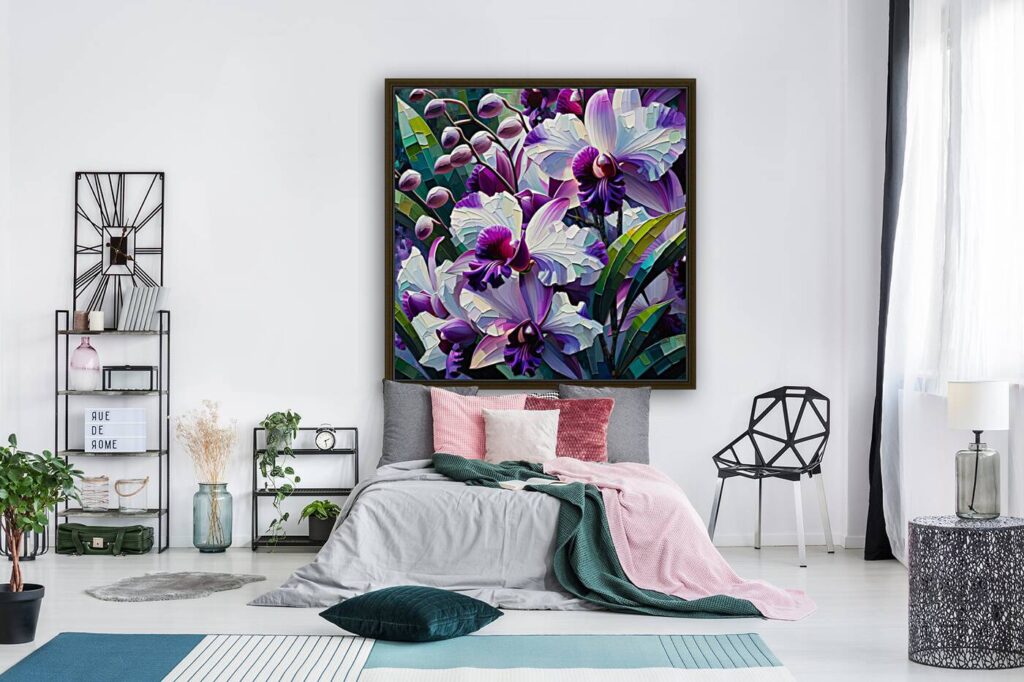Are you passionate about indoor plants and nature-inspired art? Combining these interests can enhance your living space and promote well-being. Here are ten top-performing plants to complement your artistic endeavors, along with essential care tips to ensure they thrive.
1. Dracaena Mass Cane (Dracaena fragrans ‘Massangeana’)
• Light: Bright, indirect light
• Watering: Every 1-2 weeks; allow top inch of soil to dry out
• Feeding: Once a year with organic worm castings
• Non-toxic: Safe for pets and humans
• Pests: Spider mites, mealybugs
• Solution: Wipe leaves with a mixture of water and mild soap or use neem oil
2. Pothos (Epipremnum aureum)
• Light: Low to bright indirect light
• Watering: Every 1-2 weeks; allow soil to dry out between waterings
• Feeding: Every 4-6 weeks with diluted organic fish emulsion
• Non-toxic: Mildly toxic if ingested; keep out of reach of pets and children
• Pests: Spider mites, mealybugs
• Solution: Wipe leaves with a mixture of water and mild soap or use neem oil
3. Snake Plant (Sansevieria trifasciata)
• Light: Low to bright indirect light
• Watering: Every 2-3 weeks; allow soil to dry completely
• Feeding: Every 2-3 months with organic compost tea
• Non-toxic: Mildly toxic if ingested; keep out of reach of pets and children
• Pests: Spider mites
• Solution: Wipe leaves with a mixture of water and mild soap or use neem oil
4. Peace Lily (Spathiphyllum)
• Light: Low to medium indirect light
• Watering: Once a week; keep soil moist but not waterlogged
• Feeding: Monthly during growing season with organic kelp fertilizer
• Non-toxic: Toxic to pets; keep out of reach
• Pests: Spider mites, mealybugs
• Solution: Wipe leaves with a mixture of water and mild soap or use neem oil
5. ZZ Plant (Zamioculcas zamiifolia)
• Light: Low to bright indirect light
• Watering: Every 2-3 weeks; allow soil to dry out completely
• Feeding: Every 2-3 months with organic worm castings
• Non-toxic: Toxic if ingested; handle with care
• Pests: Spider mites, aphids
• Solution: Wipe leaves with a mixture of water and mild soap or use neem oil
6. Rubber Plant (Ficus elastica)
• Light: Bright indirect light
• Watering: Every 1-2 weeks; keep soil slightly moist
• Feeding: Monthly during growing season with organic liquid fertilizer
• Non-toxic: Toxic to pets; keep out of reach
• Pests: Spider mites, scale insects
• Solution: Wipe leaves with a mixture of water and mild soap or use neem oil
7. Monstera (Monstera deliciosa)
• Light: Bright indirect light
• Watering: Every 1-2 weeks; allow top inch of soil to dry out
• Feeding: Every 4-6 weeks with organic compost tea
• Non-toxic: Mildly toxic if ingested; keep out of reach of pets and children
• Pests: Spider mites, scale insects
• Solution: Wipe leaves with a mixture of water and mild soap or use neem oil
8. Philodendron (Philodendron spp.)
• Light: Low to bright indirect light
• Watering: Every 1-2 weeks; allow soil to dry out between waterings
• Feeding: Every 4-6 weeks with organic liquid fertilizer
• Non-toxic: Toxic to pets; keep out of reach
• Pests: Spider mites, mealybugs
• Solution: Wipe leaves with a mixture of water and mild soap or use neem oil
9. Calathea (Calathea spp.)
• Light: Low to medium indirect light
• Watering: Every 1-2 weeks; keep soil consistently moist
• Feeding: Every 4-6 weeks with organic worm castings or compost tea
• Non-toxic: Safe for pets and humans
• Pests: Spider mites
• Solution: Wipe leaves with a mixture of water and mild soap or use neem oil
10. Bird of Paradise (Strelitzia reginae)
• Light: Bright indirect to direct light
• Watering: Every 1-2 weeks; allow top inch of soil to dry out
• Feeding: Every 4-6 weeks with organic liquid fertilizer
• Non-toxic: Safe for pets and humans
• Pests: Spider mites, scale insects
• Solution: Wipe leaves with a mixture of water and mild soap or use neem oil

Caring For Your Plants Using Organic Methods
For bronze casino all these plants, using non-toxic, organic methods ensures a healthier environment for you and your plants. Here are some general tips:
• Watering: Adjust the frequency based on the plant’s light conditions and the season. Plants in brighter light need more frequent watering.
• Feeding: Use organic fertilizers like seaweed extract, fish emulsion, compost tea, or worm castings to provide essential nutrients without harmful chemicals. Note that organic fertilizers, like fish emulsion, often have a strong smell. For a less smelly alternative, mix worm compost into the soil.
• Pest Control: Use organic neem oil or insecticidal soap to control pests naturally.

Pairing Interior Plants & Art
This list is compiled by artist Debra Amerson, an artist with 45+ years as an interior plantscape professional. Whether you’re a plant enthusiast at home, an interior designer, facility manager, architect, project manager, or simply looking to enhance your home decor, these plants will thrive and complement your artistic vision.
Feel free to share this guide with art lovers and fellow plant enthusiasts.
